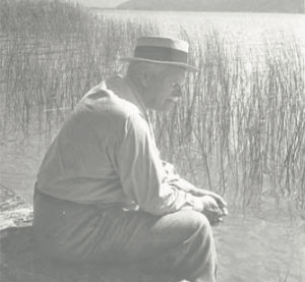Basic Jung – February 2020
Working as a Jungian Psychoanalyst

Basic Jung is a series of lectures taking place the first week of each semester during the late afternoon and early evening sessions. It is designed to be an intensive introduction to basic Jungian concepts and ways of working for new students and guests wanting a concise presentation of Analytical Psychology. Although designed as a series, each course can be attended independently.
This semester we concentrate on what is unique about working as a Jungian analyst. Working as Jungians, our methods overlap those of other schools of psychoanalysis and psychotherapy, but Jung’s concentration on working with the unconscious through the symbols presented during the analysis gives us a unique viewpoint into the meaning this has in the context of the person’s life.
After an overview of Jung’s theory of analysis and how his work relates to other theories developed at the same time, we will present the basic structuring elements of the psyche, conscious and unconscious as he conceived them. Then we will look in depth at the symbol and how this influences our work. On Thursday those attending will have the opportunity to experiment as a Jungian interpreting dreams. We conclude with what Jung considered to be one’s life path, Individuation and the ever present spiritual dimension of our work.
Date & Venue
25–28 February 2020

Stampfenbachstr. 115, 8006 Zürich
Tram 11 or 14 to Beckenhof
Event Schedule
Tuesday, 25 February
17:00–18:45
Nancy Krieger, PhD
What Does it Mean to Work as a “Jungian”?
What in the world is a 'Jungian analysis’? Who does the analyzing? What is analyzed? What happens? We will look at all these questions and more during this introduction to the Basic Jung series ‘Working as a Jungian Psychoanalyst’.
19:00–20:45
Ursula Ulmer, MA
On the Structure and Dynamics of the Psyche
The lecture will give a brief overview of Jungian concepts and how they functions in his understanding of the psyche.
Wednesday, 26 February
17:00–18:45
Brigitte Egger, Dr.sc.nat.ETH
Symbol: Basic Concept and Tool in Analytical Psychology
Understood as an image that represents much more than its mere concrete form, the symbol opens a window onto the very roots of the world. It can be experienced as a revelation, but also used as a key to translation. If becoming possessed by a symbol imprisons us, then entering into dialogue with it liberates energy. Thus the symbolic equation is to depth psychology what the mathematical equation is to the natural sciences. It allows powerful analysis and forges deeply attuned solutions. To adopt a symbolic attitude is a truly vivifying experience.
19:00–20:45
Galina Angelova, MTheol.
Minding the Soul: Jungian Psychology as a Wholistic Approach to Psychic Suffering and Healing
The lecture will address the understanding of psychic suffering and illness from a Jungian point of view. How do healing and relief come about and what facilitates those in analytical work?
Thursday, 27 February
17:00–20:45
Lucienne Marguerat, lic.phil.
The Symbolic Language of Dreams
What is Jungian in our views on dreams, on the purpose of dreams, on the meaning of the weird situations and people in our dreams? An introduction on the function and the language of dreams is followed by a common discussion of a particular dream. Another dream is then discussed first in small groups, then with all while the different findings are compared and a conclusion on a possible meaning is drawn.
Friday, 28 February
17:00–18:45
Murray Stein, PhD
Individuation: A Lifelong Journey
Jungian psychoanalysts use a theory of psychological development to assist their clients toward health and wholeness. This lecture will give an overview of how individuation theory is used in analysis.
19:00–20:45
Marco Della Chiesa, lic.phil.
The Man C.G. Jung: His Life, His Work
We will try to encounter the man C. G. Jung.
What course did his life take? What are the turning points and stations in his life? Which people played important roles in Jung’s life and how did these encounters influence his work? We will embark on a journey of Jung’s life and work, illustrated with pictures and texts.
Cost & Registration
Payment in cash at the door
The Complete Lecture Series
General Entry: CHF 180
Students, Seniors, Disabled: CHF 120
Per Lecture
General Entry: CHF 30
Students, Seniors, Disabled: CHF 20
Gratis for ISAP Students and Analysts
Registration not required
For questions please contact [email protected]
Speakers
Downloads
| File Name | Type | Permissions | Changed Date | Date | Size |
|---|
Combined size: 0 B

